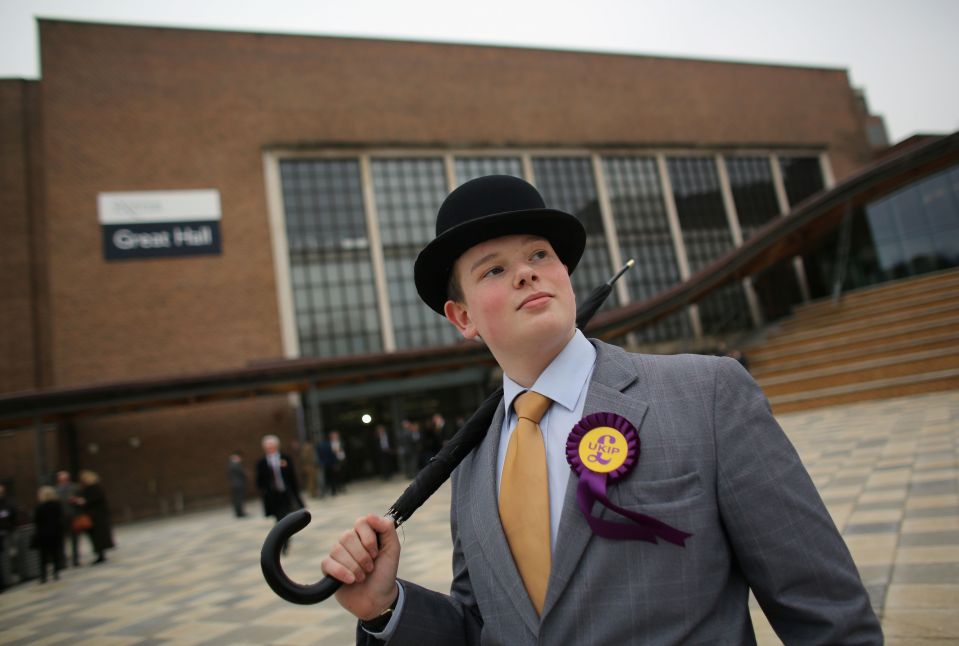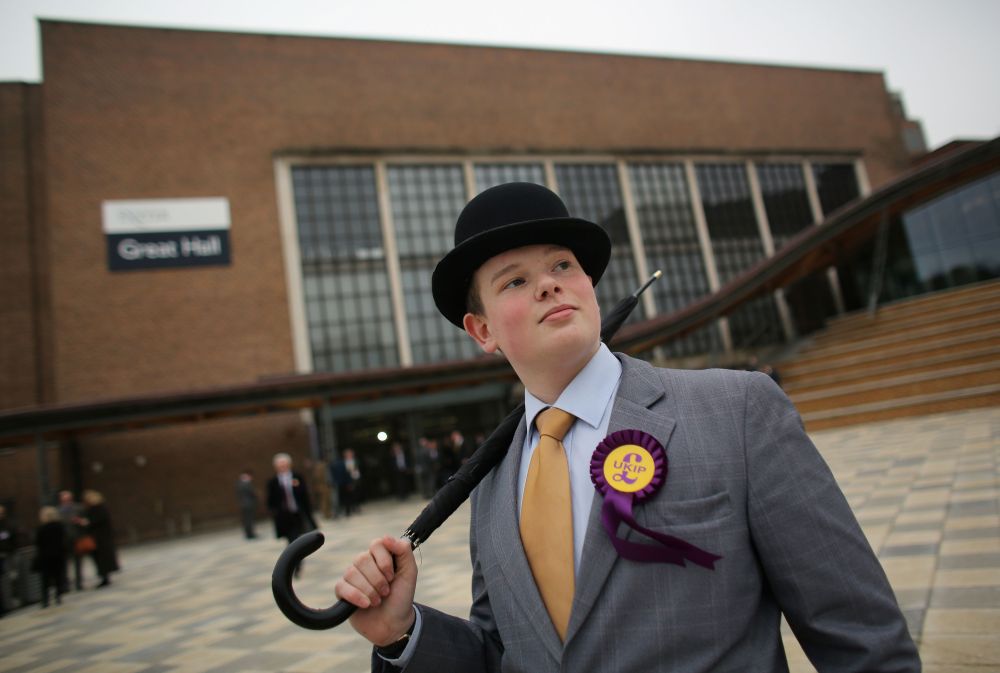How does a party go from topping the European elections in 2014 to scraping just over three per cent of the vote, and losing every single MEP, within five years? Just ask Ukip, whose staggering decline is one of the most interesting subplots from this year’s elections.
Some may quibble with the ‘Ukip wipeout’ analysis. They will say that the real Ukip – both its heart and structure – was rolled over to the Brexit party along with its former leader, Nigel Farage. And they’re partly right: in the last few years, all but three of Ukip’s 2014 MEPs quit the party. But the fact remains that Ukip still mounted a full slate of candidates and took these elections seriously. And it failed miserably.
Ever since the 2016 referendum, Ukip has failed to articulate its purpose in British politics. After Leave voters flocked back to the main parties in 2017, its new leader, Gerard Batten, began a one-man mission to rebrand and revitalise the party.
Batten’s initial plan was to try merge Ukip with the Tommy Robinson movement, a loose network of protest groups opposing the ‘Islamification’ of Britain. Batten wanted to bring Robinson himself into Ukip but was rebuffed by the party’s more mainstream members. In the end, Batten settled for making Robinson an ‘advisor’ on integration issues – handing Robinson, a convicted criminal looking to make it big stateside, a big credibility boon. How did Tommy thank him? By running against Ukip in the European elections, taking nearly 40,000 of Ukip’s votes in the North West.
Batten’s second pivot was even less successful. He rolled out the red carpet to a loose alliance of ‘anti-PC’ YouTubers who he hoped would win over young voters. The arrival of the YouTubers – Paul Joseph Watson, Sargon of Akkad, and Count Dankula – was hailed as a great victory. Ukip veteran Neil Hamilton even made a cringeworthy video praising the boys’ ‘dank memes’. Two of them, Sargon and Dankula, were made candidates at the EU elections and paraded at press conferences alongside the leader.
Why did Batten ever think this would work? Sargon and Dankula are popular on YouTube, but so are lots of strange people. How many of their millions of viewers were actually based in the UK, or eligible to vote in the first place? Did they even have a view on Brexit?
In his defence, Batten isn’t the first person to overestimate the power of reactionary YouTubers. After the 2016 US election, a worrying number of serious journalists attributed Trump’s success to the influence of the ‘alt right’ – an online subculture of lefty-botherers and conspiracy theorists which supposedly had the power to brainwash millennials into voting against Clinton. Strangely Trump himself seems to partly believe this too (that’s why he wastes Oval Office time demanding that wannabe shock jocks have their Twitter accounts reinstatated).
In reality, though, Ukip’s YouTube alliance was unable to put forward anything resembling a political platform. Hardly a surprise to anyone who has seen their work. The likes of Count Dankula have a knack for pointing out the sillier thinking in uber-left circles, but they don’t actually say much for themselves (even their trump card of ‘free speech’ is more a critique of censorious lefty types online than a public policy issue). And what about those ‘dank memes’? After much hype, Ukip’s social media operation failed to make a splash in the water next to the Brexit party’s slicker approach.
Having bet big on the culture war candidates, Ukip is now plodding into an embarrassing eighth-place finish. Epic fail, as they say online.







Comments